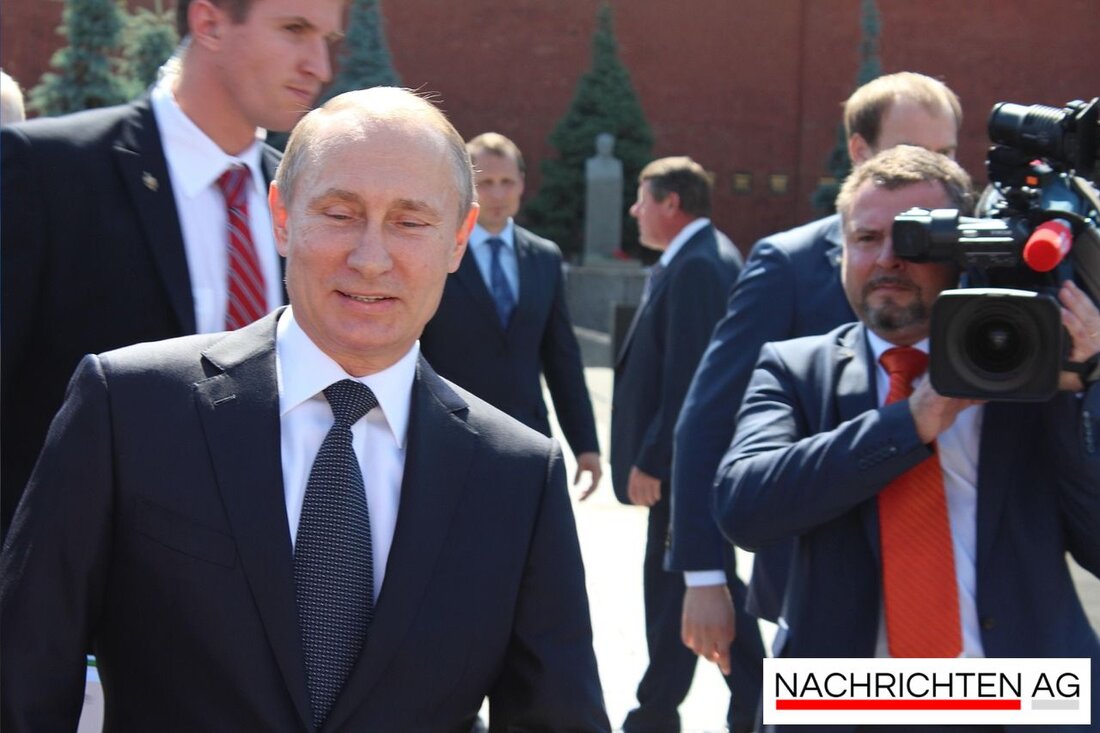Russia's path to neo-totalitarianism: experts warn of dangers!
Discover how experts in Erfurt analyze the challenges of a neo-totalitarian development in Russia. The focus is on current discussions on the Ukraine conflict and the need for European security strategies in 2025.

Russia's path to neo-totalitarianism: experts warn of dangers!
Geopolitical tensions between Russia and Ukraine are reaching new dimensions, especially in the face of continued aggression and loss of life. Current observations from experts show that the threat posed by Vladimir Putin's neo-totalitarian policies is significant not only for Ukraine, but also for Europe as a whole. These assessments were emphatically highlighted by Maria Domanska, Russia expert at the Polish think tank OSW, in a discussion in Erfurt on November 11, 2025. According to Domanska, the path to an increasingly authoritarian Russia has been paved since 2011/2012, which was accompanied by mass demonstrations in Russia, especially after Putin's return to the presidency. She emphasizes that Putin's system is strongly characterized by a connection between foreign and domestic policy and argues that the Kremlin needs war to strengthen its legitimacy.
In this context, Irina Scherbakova from the human rights organization Memorial speaks of a draconian repressive apparatus characterized by torture and murder. Even after 2012, there were protests against Putin's regime, most recently at the funeral of Alexei Navalny in 2024. Scherbakova emphasizes that state control over civil society has continued to increase. The historian and founder of LibMod, Ralf Fücks, also illustrates the challenges that Europe is facing and calls for a rethink in Germany and the EU in order to stand up to an “alliance of dictatorships”.
The essay that changed the world
A central aspect is Vladimir Putin's essay “On the Historical Unity of Russians and Ukrainians,” published on July 12, 2021, just six months before Russia's invasion of Ukraine in February 2022. In this succinct document, Putin questions the existence of Ukraine and sees it as part of a historic “triune Russian nation.” Historians and analysts describe the essay as imperialist and historical revisionist. The theses of the essay, the Russian view of Ukraine and Ukrainians, clearly show that Putin is based on Western influences and blames Kiev for the crisis in Donbas. This is not only a rhetorical signal, but also a geopolitical one - in his remarks, Ukraine is portrayed as an instrument of the West to weaken Russia.
The ongoing conflict, which began with the annexation of Crimea in 2014, and Russia's military aggression is aimed at abolishing Ukrainian statehood. According to the current status, over 6.5 million refugees have fled Ukraine and 3.6 million internally displaced persons have been created as a result of this crisis. Experts acknowledge increasing human rights crimes committed against civilians in occupied territories.
The planned as reality
In recent years, Russia has repeatedly launched major military attacks on Ukraine, often targeting critical infrastructure, particularly in the energy sector. By May 2024, however, Ukrainian armed forces had been able to regain some of the land piece by piece under enormous pressure and losses. At this point, Fücks also demands that Ukraine must continue to be supported in order to maintain the pressure so that it is strong enough to ultimately end the war. In his opinion, the Ukrainian army's successes in the Crimea region and the Black Sea region are encouraging signs in a conflict that continues to escalate.
The international community, led by the United States and Germany, approved permitted Ukrainian operations against Russian targets in May 2024, changing the dynamics of the conflict. Nevertheless, serious concerns remain about an increase in repression in Russia and the further escalation of the conflict. As the world watches, the need to take a clear and decisive stance against the authoritarian regime in Moscow becomes ever more urgent.
Where the journey of international politics will go remains uncertain, but one thing is certain: the challenges that geopolitical decisions and military aggression bring with them also affect and shape life here in Europe. It is therefore up to us to monitor developments closely and act accordingly.
We are undeniably at a critical moment that presents both opportunities and challenges. Current conversations and analyzes of these dynamics are therefore more important than ever.
For more information and a deeper insight into the topic, visit the articles from Understanding Russia, Wikipedia and bpb.de.

 Suche
Suche
 Mein Konto
Mein Konto